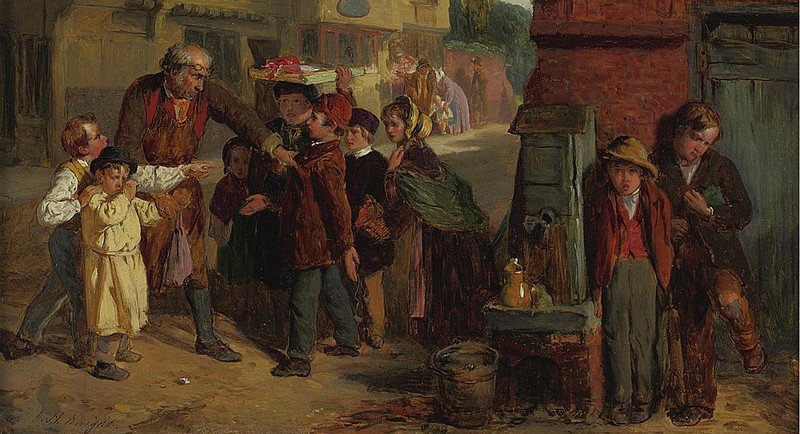The parable of the broken window is an illustrative example invented by Frédéric Bastiat, a French philosopher and classical liberal.
The example is as follows:
Imagine the owner of a candy store, whose window is broken by boys playing football. People run around the scene of the accident, pitty the owner and blame and rebuke the naughty. Nevertheless, there are some people among the crowd who say that a broken window also has its bright economic side. A broken window means work for the window maker. For the money he earns he can now buy bread, for example. That’s how the baker has a job. And he will be able to buy, let us say, shoes which brings shoemaker a job, and so on.
And so, the effect of the broken window spreads throughout the whole economy in a positive way.
Does this mean that the boys should be given some rewarding candies? Breaking the window could seem to cause positive economic effects throughout the city and ultimately throughout the whole economy.
VIDEO
However, we are facing here an economic delusion. This is because people see only the positives caused by the need to buy a new window. Yet, they ignore that which is no longer visible. Hidden costs.
The candy-shop owner is now forced to use money to repair the window. If he did not need to repair the window, he could either save this money or spend it in a different way. If he saved it, the money would be used in the economy as savings for future investments. And if he spent the money, it would be he who would buy bread, which would reward the baker, who would then be able to buy shoes.
Therefore, after the accident, the owner of a candy store only has a new window, instead of a window and bread. And the same effect spreads thorough the economy afterward. In other words, we have one more window compared to the situation with the broken window.
The parable of the broken window is often used to defend incorrect and even harmful economic policies. If it was true that it was actually good for the candy-shop owner that boys broke the window, then it should also be true that a war which is destroying people’s lives and devastating the economies of countries is actually beneficial.
There is no need to thank natural disasters or terrorists for destruction and suffering. Although after the disaster, there must be a renewal, we must always realize that if there was no war, catastrophe or misfortune, we would have the original things and also some new ones. Therefore, we would be richer.
The same argument can also be applied to many kinds of public expenditures. You have to pay for public expenditures as well. Nothing is for free. And uncollected taxes could be used for either savings or some other consumption. They would not get lost.
The absence of some public programs does not mean that people will not spend or save. The only distinction would be that they will spend according to their own preferences instead of political decisions and savings would be used directly by entrepreneurs to meet consumer’s needs. It does not mean that we would not have services which are called public today.
Let us remember that all policies and economic measures should be considered from an overall perspective, and not just marvel at what is seen. We also have to think about what is no longer visible.



